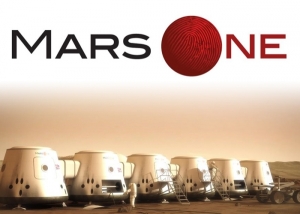A group over 100,000 people have submitted applications for a one-way trip to colonize Mars in 2022.This means that they are willing to forfeit everything that they know and love for a chance to be the first humans to travel to and  colonize an alien planet.
colonize an alien planet.
There’s something in that concept that’s majestic and kind of poetic, in a way that they are writing human history and taking huge risks to do so. Mars One is behind the project, and when asked on their FAQ, “Why go to Mars?” they responded as follows.
Why did Columbus travel west? Why did Marco Polo head east? Because it is that pull, that unknown, that prospect of adventure that compels humans to seek new frontiers to explore.
It does seem a part of the human condition to explore the unknown, and there are certainly viable reasons for expanding human life to other planetary bodies, but is it even possible, and will Mars One actually be able to pay for such a mission?
The not-for-profit organization plans to fund the $6 billion mission “by making it the biggest media spectacle in history”. This includes reality shows that will follow the astronauts’ eight year training that will teach them medical  procedures, construction and repair, and gardening techniques among many other necessary skills.
procedures, construction and repair, and gardening techniques among many other necessary skills.
These shows will continue as the explorers land and begin developing a livable habitat. I would certainly watch that over the reality t.v. that is currently available, but I’m doubtful that it would be enough to fund the mission. They do have other sources from donations, merchandise sales, application fees, investors, and so on, but let’s just hope that it is enough to get this idea off of the ground.
There are other companies and even universities that are working on similar concepts. Elon Musk, CEO of SpaceX has mentioned future plans for “Martian bases” and has already made significant progress in private spaceflight.
Would you sign-up to colonize Mars? If the answer is yes, sign-up, applications are still being taken.
Related articles
- More than 100,000 want to go to Mars and not return, project says (cnn.com)
- UK Scientists’ Plan to Put Humans on Mars (wonderfanatic.wordpress.com)
